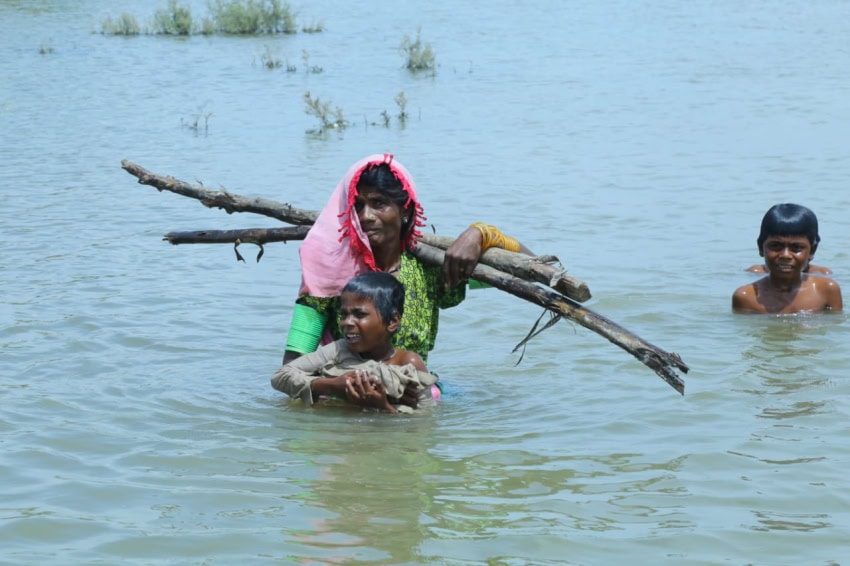ISLAMABAD – WaterAid has scaled up its response, allocating PKR 126 million to the relief efforts. The organisation has also launched a fundraising appeal in the UK to support in providing hygiene kits with soap and other household goods, disinfecting drinking water sources, building temporary toilets in schools/camps, helping with the clearance of flood water and supporting the specific needs of women and girls in the flood affected areas including the provision of menstrual hygiene kits, said a press released issued here on Saturday.
The aid organisation specialised in clean water, sanitation and hygiene said that richer governments need to step up aid to millions of displaced Pakistanis so that they can have access to basic services like clean water, hygiene, shelter and food.
The humanitarian agency is calling the devastating floods in Pakistan a life-or-death wakeup call from the frontlines of the climate crisis, while the country is facing the ‘beginning of the worst crisis’ as millions of people have been displaced by the floods and a public health disaster is looming.
With COP27 only two months away, developed nations need to start making good on their commitments to at least double the financial support for adaptation and mitigation to developing countries, the organisation said.
The Country Director of WaterAid in Pakistan Arif Jabbar Khan said the floods in the country have been longer and more intense than before with devastating consequences. Khan, who has been in the Sindh province over the past few days, said “Pakistan is facing only the beginning of another wave of health-related crisis as people are basically forced to drink contaminated water from open sources which have already resulted in thousands of cases of malaria, diarrhoea, skin and other diseases. The number of malaria cases is rising so fast that in one district, health officials said they have run out of capacity to even test for malaria due to the number of patients let alone treating them.”
We have had extreme heat waves directly followed by extreme flooding. “This is climate blow upon blow. In the past week, the floods have kicked off a public health emergency and displacement emergency. With two months to COP27, this latest climate tragedy needs to be taken as a wake-up call to the world. Pakistan cannot continue to be at the receiving end of the world’s inability to address the climate crisis, the world must take action now,” Khan explained.
A recent report from health officials has claimed over 90,000 diarrhoea cases from one of the worst-hit provinces, Sindh. Further to this 1080 Healthcare facilities have been damaged in the Sindh province alone, hampering the medical efforts and the ability to treat those impacted by the disease.
He said and added diseases usually really start spreading a few days after waters have receded. Whatever water is left behind is contaminated and people start drinking again from the previously clean water sources which are now dirty, spreading the risk of cholera and diarrhoea. That’s why it is vital we clean those water points as soon as possible.













